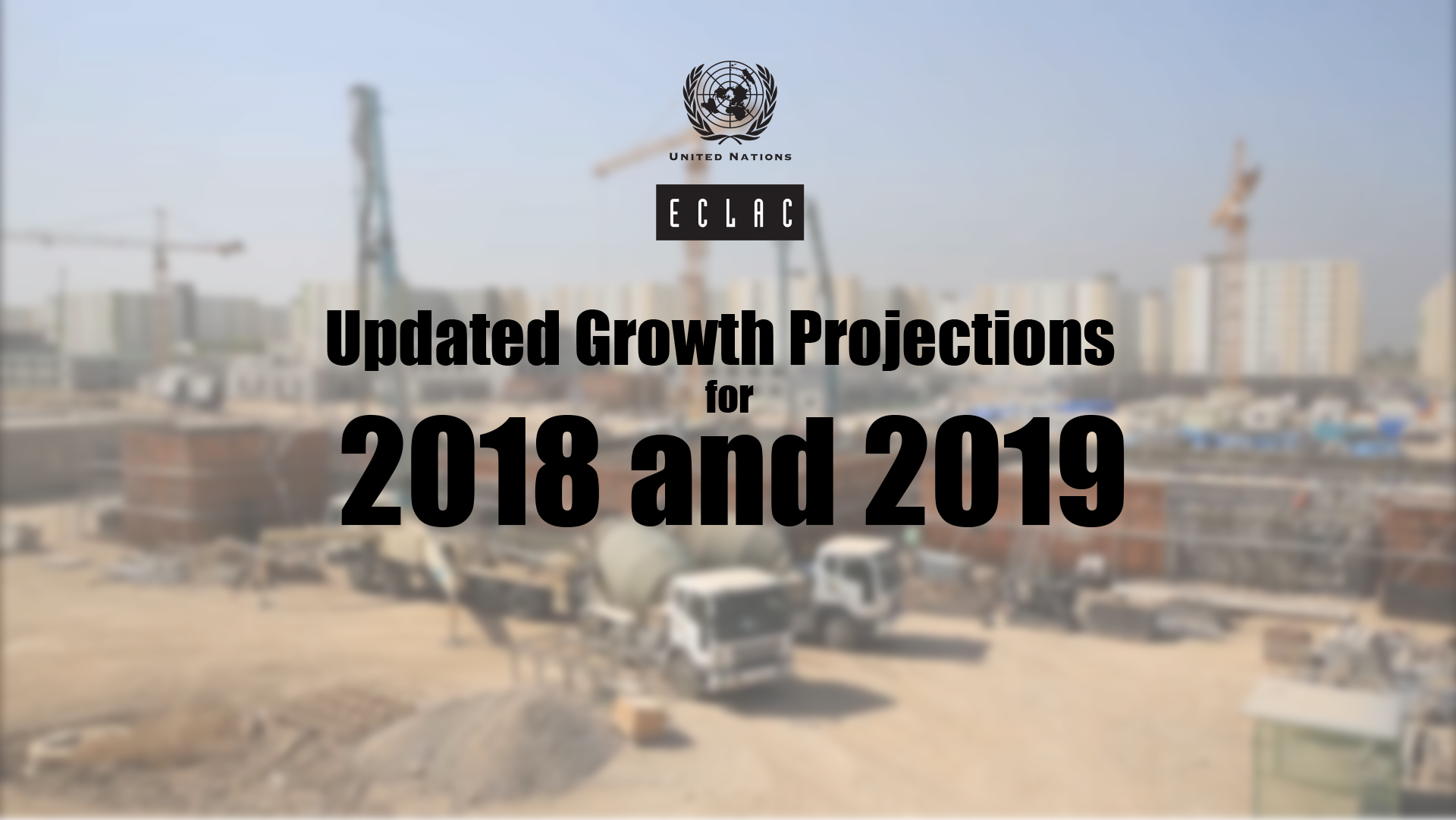Economic Activity in Latin America and the Caribbean will Expand by 1.3% in 2018 and 1.8% in 2019
Work area(s)
ECLAC has updated its growth projections for the countries of the region.

The Economic Commission for Latin America and the Caribbean (ECLAC) reviewed economic growth projections for the region for 2018 and expects an average expansion of 1.3% in Latin America and the Caribbean this year, slightly lower than that forecast this past August (1.5%). It foresees a growth rate of 1.8% for 2019, according to a press release issued today by the United Nations’ organization.
As usual, the growth dynamic across countries and subregions will vary, says ECLAC. The economies of South America, which specialize in the production of primary goods, particularly oil, minerals and foods, are expected to grow at a positive rate (0.7%) this year, slightly lower than last year. A better performance is expected for this subregion in 2019, with estimated growth of 1.6% on average.
As for the economies of Central America, growth of 3.2% is estimated for this year and 3.3% for 2019. If Central America and Mexico are both taken into account, the projection for 2018 is 2.4% and 2.5% for 2019.
Average expected growth for the English- or Dutch-speaking Caribbean is 1.9% for 2018, a higher revised figure compared to the August projection, mainly due to a more vigorous oil sector in Trinidad and Tobago, the largest economy in the subregion, and influenced in some cases by spending efforts on post-natural disaster reconstruction. The growth rate expected for the Caribbean region is 2.1%.
Projections for 2019 are in a context of increasing uncertainty and medium-term risks, ECLAC points out. An ongoing risk for emerging economies in general, and for Latin America and the Caribbean in particular, is further deterioration of the international financial environment. The high levels of corporate and sovereign debt accumulated over years of lax global financial conditions constitute a risk for some economies that are more exposed to changes in the financial scenario (greater needs for external financing, greater proportion of foreign currency debt and short-term debt, among others).
Moreover, trade tensions have been escalating in recent months. Although these have still only been reflected in moderate revisions to the low volume projected for world trade and global economic activity for 2019, they constitute a risk to regional economic activity. Trade tensions pose a risk not only to global trade and world economic growth in the medium term, but also to raw materials prices and global financial conditions as a whole, generally linked to greater or lesser risk perception.
In light of this international scenario, internal demand will play an important role in the region’s growth over the coming year, added ECLAC. Albeit with differences between countries, investment is expected to play a greater role, with private consumption continuing to be a major engine for internal demand in 2019.
Attachment(s)
Related content

Latin America and the Caribbean Holds to a Path of Moderate Growth and its Economy Will Expand 1.5% in 2018, Despite External Uncertainties
ECLAC released today its Economic Survey 2018, in which it offers a profound analysis of the evolution of investment in the region.
Country(ies)
- Latin America and the Caribbean
Contact
Public Information Unit
- prensa@cepal.org
- (56 2) 2210 2040